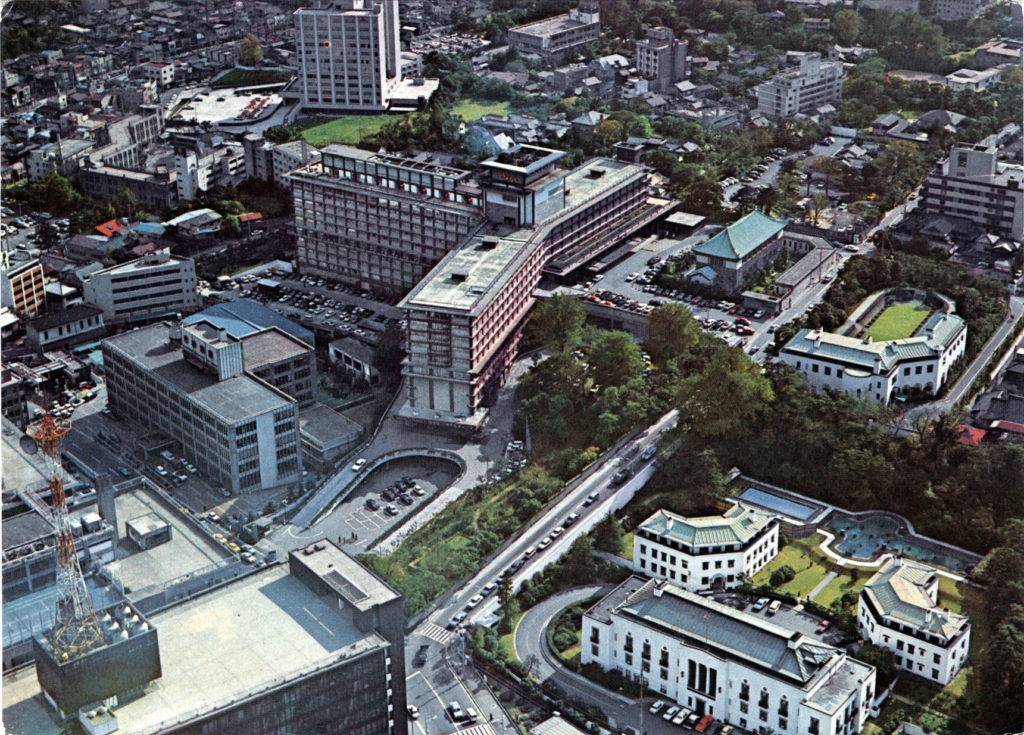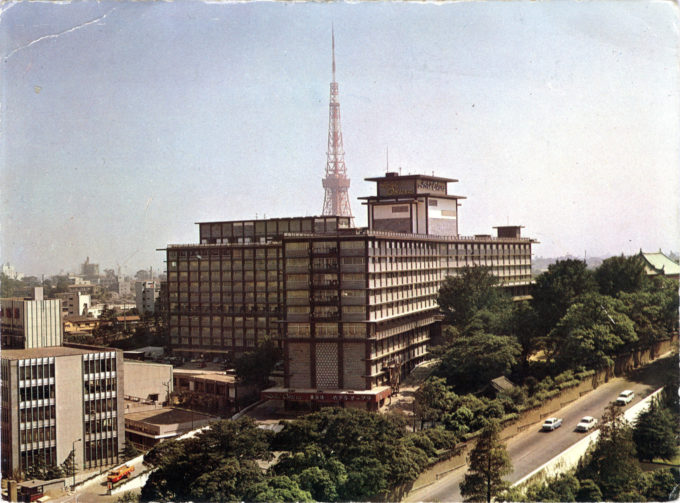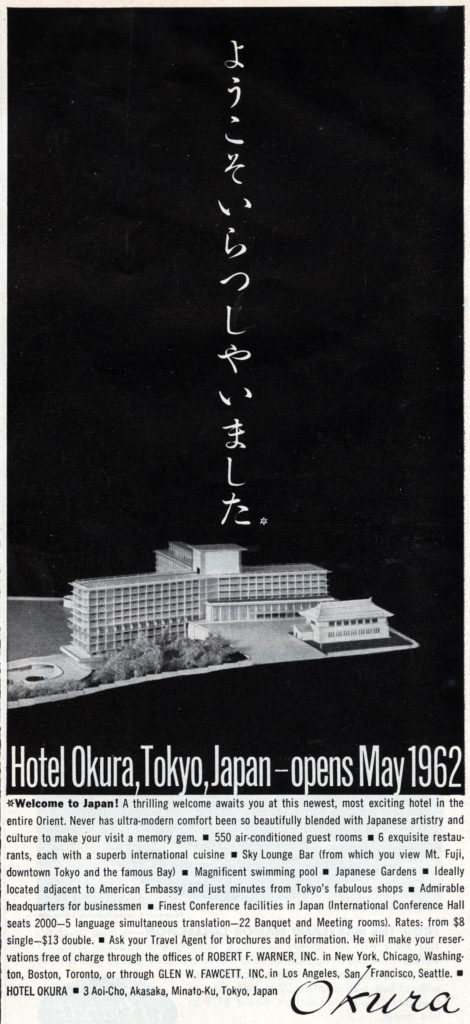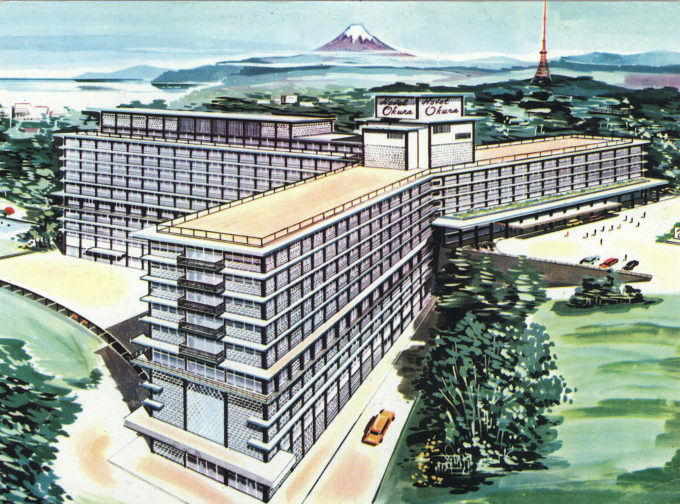
Aerial view of the Hotel Okura grounds, c. 1970. To the hotel’s immediate right, under the green-tiled roof, is the renowned Okura Museum. At lower-right is the US Embassy and, behind it and to the right of the Okura Museum, is the US ambassador’s residence.
See also:
Okura Museum, c. 1920
Okura & Co., 1921
“We know that [Ian] Fleming had decided to write a Bond novel set in Japan after his first visit [in 1962] but Fleming was also planning the book when Japan was very much in the forefront of the West’s mind not least as she was about to host the Tokyo Olympic Games.
“… By the time Fleming flew into Haneda he was now a globally recognized celebrity and was whisked through immigration and customs. In a biography it says he played the part: puffing on his Moreland cigarettes, carrying a shooting stick and wearing his signature light-weight blue suit and polka-dot bow tie.
Advertisement for hotel opening, 1962. “Welcome! Please come in” is written vertically in hiragana. (Click image to enlarge.)”
“Unlike his first visit Fleming was able to stay in a Western-style hotel, the brand new Hotel Okura: a first-class hotel with western rooms and beds; the hotel boasted in their advertising of having 550 rooms with TV and radio, a Japanese spa and a Turkish bath.
“The hotel had opened a few months before Fleming arrived, anticipating that the economic boom was unstoppable and that significant business would come from the Tokyo Olympics. Its competition for the top spot was the regal Imperial Hotel that had ruled unchallenged for decades. This was about to change.
“With a burst of inspiration, Kishichiro Okura, the hotel’s owner, brought together an imaginative group of individuals in the late 1950s with a brief to combine both Western modern and traditional Japanese elements in the design. That group included the architects Yoshiro Taniguchi and Hideo Kosaka, the artist Shiko Munakata and the potter Kenichi Tomimoto. Together they moulded a unique design – that used the indigenous colours, textures, and materials of Japan within a Modernistic flourish – into a masterpiece that could never be reproduced again.”
– Fleming, Bond, and Connery in Japan: The Japan Story of “You Only Live Twice”, by Graham M. Thomas, 2016

An elevated street view of the Hotel Okura, c. 1970, with Tokyo Tower in the distance.
“My respect for Japanese etiquette is not everything it should be. On my first trip to Tokyo, in August, I forgot to pack business cards. On the other hand, I did take the precaution of booking myself into the legendary Hotel Okura, so I did not entirely lose face.
“The Okura gives the face of those who stay there an instant lift. The hotel is in the Toranomon district, just across the street from the United States embassy, and a privileged ambassadorial aura rubs off on the Okura and its guests. A room here is a calling card, a credential that identifies the lodger as a Somebody, or at least as somebody willing to go along with the way the Japanese expect visiting Somebodies to behave.
“There may be better hotels in Tokyo. Fancier, more expensive, and more modern hotels are numerous throughout the city. Let them all try harder. There is only Okura.”
– Hearts of the City: Selected Writings of Herbert Muschamp, by Herbert Muschamp, 2009



